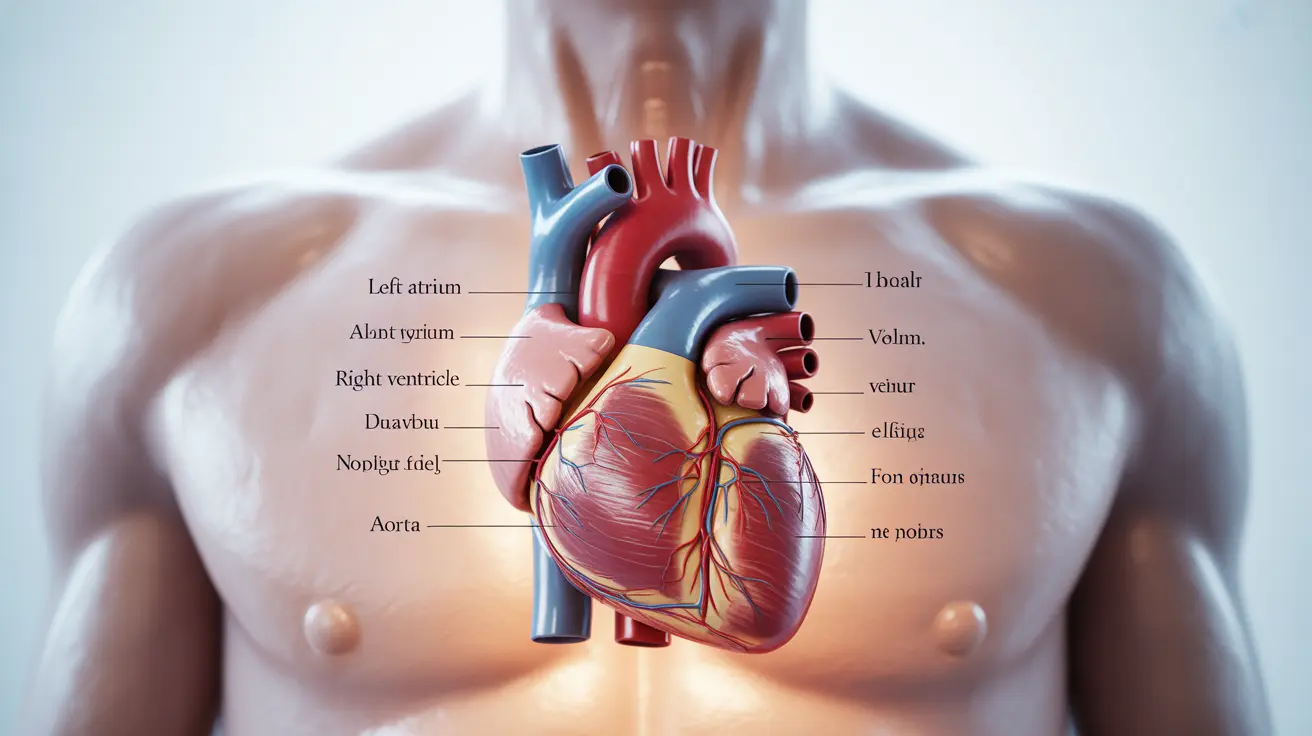When fluid accumulates in the space surrounding the heart, known medically as pericardial effusion, it can lead to serious health complications if left untreated. This condition occurs within the pericardium, the protective sac that encases the heart, and requires prompt medical attention to prevent potential complications.
Understanding the causes, recognizing the symptoms, and knowing available treatment options are crucial for anyone affected by or concerned about fluid around the heart. This comprehensive guide will explore everything you need to know about this serious cardiac condition.
What Causes Fluid to Accumulate Around the Heart?
Several underlying conditions can lead to fluid accumulation around the heart:
- Inflammation (pericarditis)
- Certain cancers
- Autoimmune disorders
- Kidney failure
- Severe infections
- Trauma or injury to the chest
- Complications from heart surgery
The type and amount of fluid that accumulates can vary depending on the underlying cause, which is why proper medical diagnosis is essential for effective treatment.
Recognizing the Warning Signs
The symptoms of fluid around the heart can range from mild to severe, depending on how quickly the fluid accumulates and how much is present. Common signs include:
- Chest pain or pressure
- Shortness of breath, especially when lying down
- Rapid or irregular heartbeat
- Fatigue and weakness
- Dizziness or fainting
- Cough and difficulty breathing
- Swelling in the legs and abdomen
Diagnostic Procedures and Tests
Healthcare providers use several methods to diagnose fluid around the heart:
- Echocardiogram
- Chest X-ray
- CT scan
- MRI
- Blood tests
- Electrocardiogram (ECG)
These tests help determine the amount of fluid present and identify the underlying cause, which is crucial for developing an effective treatment plan.
Treatment Approaches and Medical Interventions
Conservative Management
In some cases, especially when the fluid accumulation is mild and the underlying cause is treatable, doctors may recommend:
- Medications to reduce inflammation
- Treatment of the underlying condition
- Regular monitoring through imaging
- Lifestyle modifications
Invasive Procedures
For more severe cases, medical procedures may be necessary:
- Pericardiocentesis (needle drainage)
- Surgery to create a permanent drainage window
- Pericardiectomy in severe cases
Prevention and Risk Reduction
While not all cases of fluid around the heart can be prevented, certain measures can help reduce risk:
- Managing underlying health conditions
- Regular medical check-ups
- Maintaining a healthy lifestyle
- Prompt treatment of infections
- Following post-surgery care instructions carefully
Frequently Asked Questions
What are the symptoms of having fluid around the heart, and how severe can they become? The symptoms can range from mild discomfort to severe complications. Common signs include chest pain, shortness of breath, rapid heartbeat, and fatigue. In severe cases, it can lead to cardiac tamponade, a life-threatening condition requiring immediate medical attention.
How is pericardial effusion typically treated, and what are the most common procedures? Treatment depends on the severity and cause. Mild cases may be managed with anti-inflammatory medications and monitoring. Severe cases often require pericardiocentesis (needle drainage) or surgical intervention to remove the fluid and prevent recurrence.
Can pericardial effusion be caused by heart conditions or surgeries, and what are the risks? Yes, both heart conditions and surgeries can cause pericardial effusion. Common causes include heart failure, cardiac surgery complications, and inflammatory heart conditions. The main risks include cardiac tamponade, chronic inflammation, and potential heart function impairment.
What are the differences between pericardiocentesis and surgical treatments for pericardial effusion? Pericardiocentesis involves using a needle to drain fluid through the chest wall, while surgical treatments like creating a pericardial window or performing a pericardiectomy require more invasive procedures. The choice depends on the severity, cause, and likelihood of recurrence.
How can I prevent or reduce the risk of developing fluid buildup around the heart? Prevention strategies include managing underlying health conditions, maintaining regular medical check-ups, following a heart-healthy lifestyle, and promptly treating infections or inflammation. Post-surgery patients should carefully follow recovery guidelines to minimize complications.




